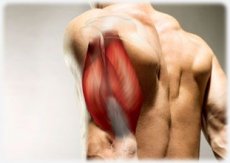Medical expert of the article
New publications
Ephedra or ma guang
Last reviewed: 04.07.2025

All iLive content is medically reviewed or fact checked to ensure as much factual accuracy as possible.
We have strict sourcing guidelines and only link to reputable media sites, academic research institutions and, whenever possible, medically peer reviewed studies. Note that the numbers in parentheses ([1], [2], etc.) are clickable links to these studies.
If you feel that any of our content is inaccurate, out-of-date, or otherwise questionable, please select it and press Ctrl + Enter.

Main functions
- Improves athletic performance.
- Promotes weight loss.
Theoretical foundations
Ephedra, or Ma Guang, is an herb that has been used in Chinese medicine for almost 5,000 years. Historically, ephedra has been used for colds, to stimulate the central nervous system, and to treat bronchial asthma. Its active ingredients are ephedrine and pseudoephedrine. These two ingredients are usually classified as medical products. Ephedra is considered a sympathomimetic, its mimetic hormones, epinephrine and norepinephrine, stimulate the central nervous system.
Ephedra may improve athletic performance by increasing cardiac output, dilating bronchial airways, enhancing muscle contractility, and (possibly) increasing blood glucose levels during exercise.
Research results
White et al. studied the effects of ephedra on heart rate and blood pressure in normotensive adults. Twelve subjects participated in the two-phase study. In the first phase, they underwent ambulatory blood pressure monitoring every 15 minutes between 7 and 8 a.m.; in the second phase, blood pressure was measured in the same way, but the subjects were given 375 mg of ephedra at breakfast and dinner.
Three hours after consuming ephedra, four people had a slight increase in systolic pressure, and six people had a significant increase in heart rate. However, the increase in pressure and heart rate was not accompanied by clinical symptoms. The authors concluded that while ephedra is safe for people with normal blood pressure, combining this powerful stimulant with other stimulants, such as caffeine, may increase heart rate and blood pressure.
Ramsey et al. studied the effects of a combination of ephedra and caffeine on body composition in macaque monkeys. Twelve animals were divided into underweight and overweight groups. The monkeys were tested over a 7-week control period, receiving 6 mg ephedrine and 50 mg caffeine three times daily for 8 weeks and placebo for 7 weeks. Food intake was monitored throughout the experiment, and energy expenditure was calculated from oxygen consumption. The results showed that ephedrine plus caffeine decreased fat mass in both groups of monkeys. In the underweight monkeys, this was due to an increase in resting energy expenditure only, while in the overweight monkeys, this was due to an increase in resting energy expenditure and a decrease in food intake.
There are concerns about doping. Athletes may not be aware that ephedrine or other stimulants are contained in herbs whose names they do not recognize. Therefore, unintentional consumption of such herbs by elite athletes may lead to suspicion of doping. Ephedrine is banned by the IOC and NCAA.
Recommendations
There is no substantiated evidence that ephedra can improve athletic performance. Although some studies have concluded that ephedra promotes weight loss, its safety is questionable. According to the Food and Drug Administration (FDA), since 1993, 17 people have died and 800 have become ill as a result of taking ephedrine supplements. Adverse reactions to ephedrine include high blood pressure, irregular heartbeat, insomnia, nervousness, tremors, headaches, heart attacks, strokes, and death.
The APM recommends a maximum daily dose of 24 mg of ephedrine. Each supplement should contain no more than 8 mg of ephedrine or a related alkaloid. Supplements should be used for no more than one week. It is also recommended that all products containing ephedrine carry a warning on the label that consuming more than the recommended dose may cause heart attack, stroke, seizures, or death. Combining ephedrine-containing products with caffeine increases the harmful effects.
 [ 1 ], [ 2 ], [ 3 ], [ 4 ], [ 5 ], [ 6 ], [ 7 ], [ 8 ], [ 9 ]
[ 1 ], [ 2 ], [ 3 ], [ 4 ], [ 5 ], [ 6 ], [ 7 ], [ 8 ], [ 9 ]

